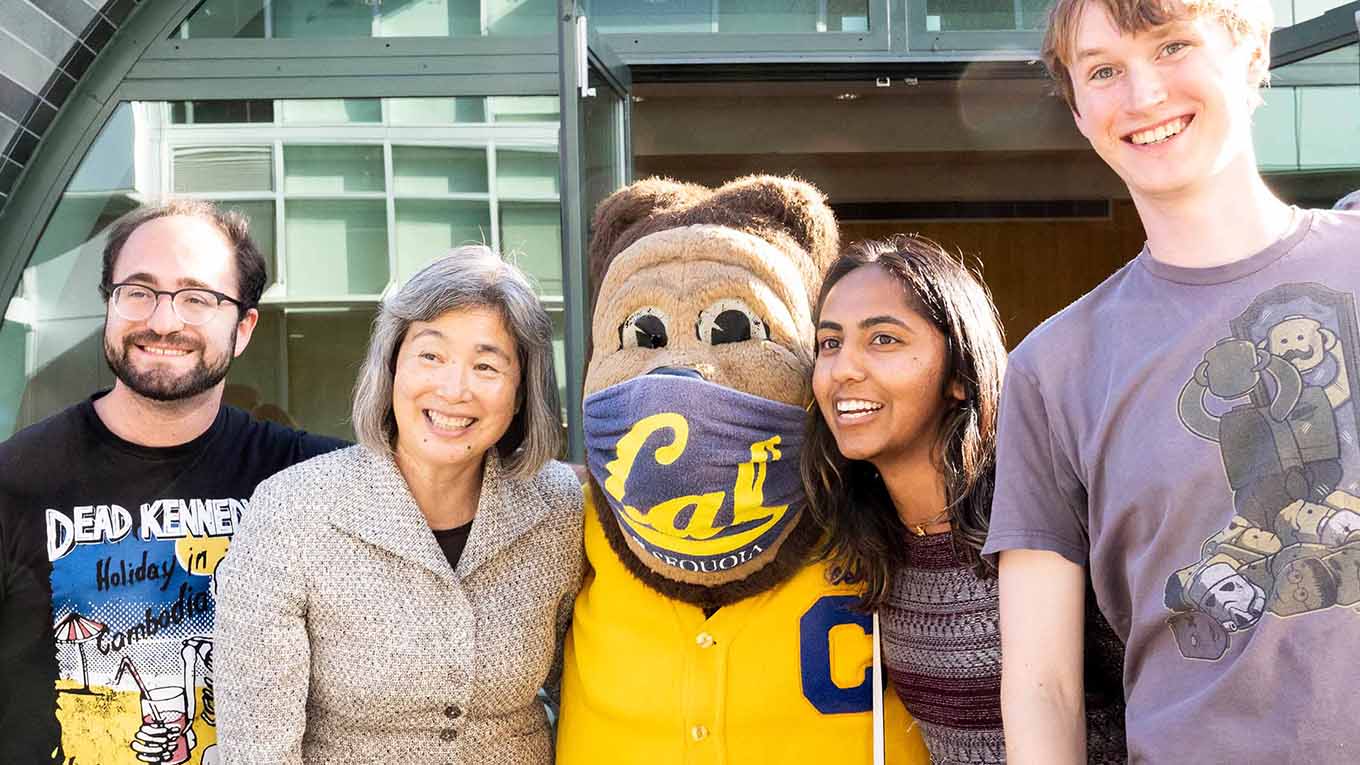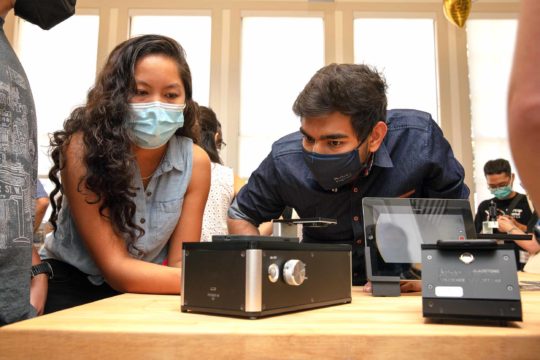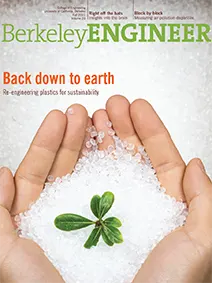 Dean Tsu-Jae King Liu with Oski and students during the Wozniak Terrace ribbon-cutting ceremony at Soda Hall in October 2021. (Photo by Adam Lau)
Dean Tsu-Jae King Liu with Oski and students during the Wozniak Terrace ribbon-cutting ceremony at Soda Hall in October 2021. (Photo by Adam Lau)Dean’s note: Engineering better health
This fall, our college community — largely vaccinated and masked — welcomed the return of in-person classes with a mix of excitement, joy, relief and a bit of apprehension. While we keep our guards up against a threat that continues to persist, we are determined to move forward, applying lessons we’ve learned during this health crisis and innovating new ways to improve health.
Our Engineering Better Health initiative will help transform traditional healthcare through the invention of novel technologies.
Throughout the pandemic, we saw the need for rapid diagnostic tests to contain outbreaks and facilitate contact tracing. We felt the strain of medical facilities as doctors made wrenching life-and-death decisions due to limited resources. And although telemedicine existed before COVID-19, the pandemic highlighted the importance of mobile health technologies for safe and efficient patient care.
The stressors placed on our healthcare system clearly illustrate the need for new strategies to deliver quality care that is sustainable and accessible. That is why I am pleased to announce our Engineering Better Health initiative to engage students, faculty and collaborators to help lead the transformation of traditional healthcare through the invention of novel technologies.

HealthTech CoLab grand opening at Blum Hall on Thursday, Sept. 23, 2021. (Photo by Pedal Born Pictures)
The first pillar of the Engineering Better Health initiative is the Health Technologies Collaborative Laboratory (the Health Tech CoLab) that we launched this September to accelerate the development of devices and systems to transform the way healthcare is managed and delivered. This new space in Blum Hall will provide a hub for students and researchers from engineering, public health, data science, national laboratories, local clinics and industry to collaborate on innovative solutions for improving the quality, accessibility and cost of healthcare. At the CoLab, student teams and researchers can develop and test their medical device prototypes, exploiting the latest advances in sensors, mobile devices and algorithms.
A prime example of the kind of work facilitated by the CoLab is the adaptation of a cellphone-based microscope for fast, accurate COVID-19 mobile diagnostics. It is a project that came out of a collaboration between Nobel biochemist Jennifer Doudna, virologist Melanie Ott at the Gladstone Institutes/UCSF and bioengineer Daniel Fletcher, who is on my leadership team as a special advisor for health initiatives and the founding director of the Health Tech CoLab.
The Health Tech CoLab is the latest addition to the constellation of collaboration spaces across the Berkeley campus, and I am excited to see it foster innovation toward engineering better health for all.

Tsu-Jae King Liu
Dean and Roy W. Carlson Professor of Engineering
